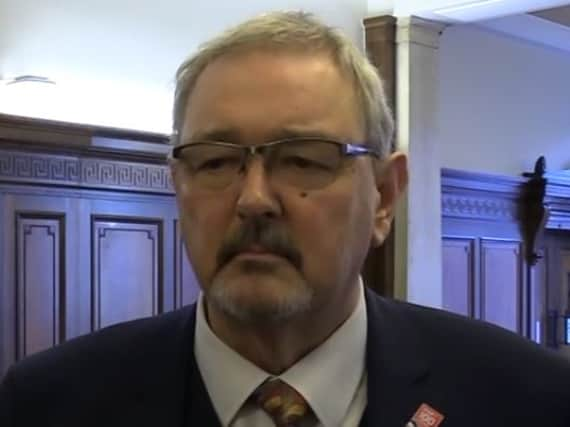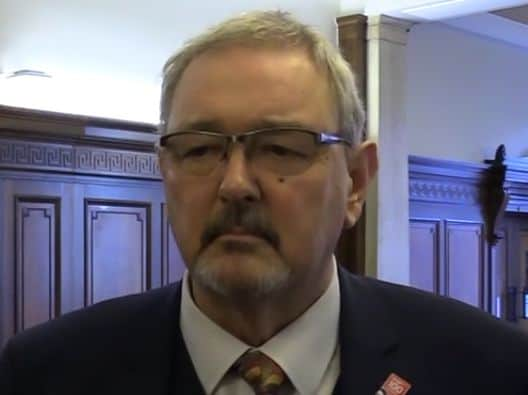Could less care be better care if it allows people to keep their independence?


Lancashire County Council’s cabinet member for adult social care, Graham Gooch, was speaking after it emerged that the region will be one of the biggest beneficiaries from a fund set up to ease pressure on adult social services this winter.
Lancashire County Council’s cabinet member for adult social care, Graham Gooch, was speaking after it emerged that the region will be one of the biggest beneficiaries from a fund set up to ease pressure on adult social services this winter.


Advertisement
Hide AdAdvertisement
Hide AdThe county council area is set to receive £5.5m, the fourth largest allocation from a £240m pot announced by the government last month. The standalone councils in Blackpool and Blackburn with Darwen will be handed £900,000 and £765,000 respectively.
But while describing the cash as “very useful”, County Cllr Gooch regretted that it came with “strings” attached.
The focus of the funding is to reduce delays to hospital discharges for patients who are medically fit to leave, but require an assessment of their needs in a home setting before they can do so. So-called delayed transfers of care (DTOCs) have been a target for similar one-off cash injections over the last two years.
“In the last year, we have managed to reduce the number of DTOCs by 43 percent, which is a huge achievement - and we want to keep doing that,” County Cllr Gooch said.
Advertisement
Hide AdAdvertisement
Hide Ad“But that doesn’t solve the root cause of the problem. What I want to do is keep people out of hospital in the first place and then get them into the right place when they are discharged.
"We’ve provided far more care to people than any other council in the country - and that sounds good, but what we’re doing is taking away [people's] independence and that’s not good for them," he added.
Last year, Lancashire was threatened with having its share of a previous pot of funding clawed back by the government if it failed to meet a series of targets to reduce unnecessary stays in hospital. The county met the targets for the first time over the summer by overhauling the way it assesses people before they leave hospital.
As well as introducing seven-day working and sharing responsibility for assessment with other organisations, patients can now be discharged from hospital first - and then assessed in their own homes later. And County Cllr Gooch says that with the appropriate short-term support to keep them safe, it is a far better option.
Advertisement
Hide AdAdvertisement
Hide Ad“Assessments in hospital are all very well, but it’s not where people live. It’s all nice smooth floors, no stairs, easy to access toilets - their living conditions at home may be different to that.”
And the man responsible for the welfare of 900,000 of Lancashire's most vulnerable residents says the time is now right to spend some of that money more broadly on so-called ‘intermediate care’ for patients who do not need to be in hospital, but are not yet safe enough to be sent back home.
“[Of all the] people who go straight from hospital and into residential care - because there’s nowhere else available - 80 percent of them never regain their independence and go back to their own home,” County Cllr Gooch said. But of those who go to intermediate care establishments, they nearly all go back to their own home.
“It will take people out of hospital and free up beds, but they aren’t just cast adrift - they go into a home which [has] clinical care and is nurse-led. And at the same time, we’ve got our reablement team in there to give them the skills to reintroduce them...into their own homes.”
Advertisement
Hide AdAdvertisement
Hide AdMeanwhile, County Cllr Gooch says local authorities and the NHS should not be afraid to look to the long term to reduce demand for hospital services from the outset.
“You’ve got to go right back to creating a healthy population which doesn’t smoke and does things to look after themselves. We’ve got to fight obesity, smoking and over-use of alcohol.
“It’s no good saying we’ll just keep fighting the fire and pour more and more money into the result of what you could have cured in the first place,” County Cllr Gooch said.
Responding to the additional funding for winter, the County Councils' Network - which represents 36 local authorities across the country - described it as “desperately needed".
Advertisement
Hide AdAdvertisement
Hide AdBut David Williams, the organisation's social care spokesperson, added: “This one-off, in-year funding cannot underpin ongoing resourcing and workforce strategies and [it] perpetuates a trend of short-termism we have seen from successive governments when it comes to adult social care."
